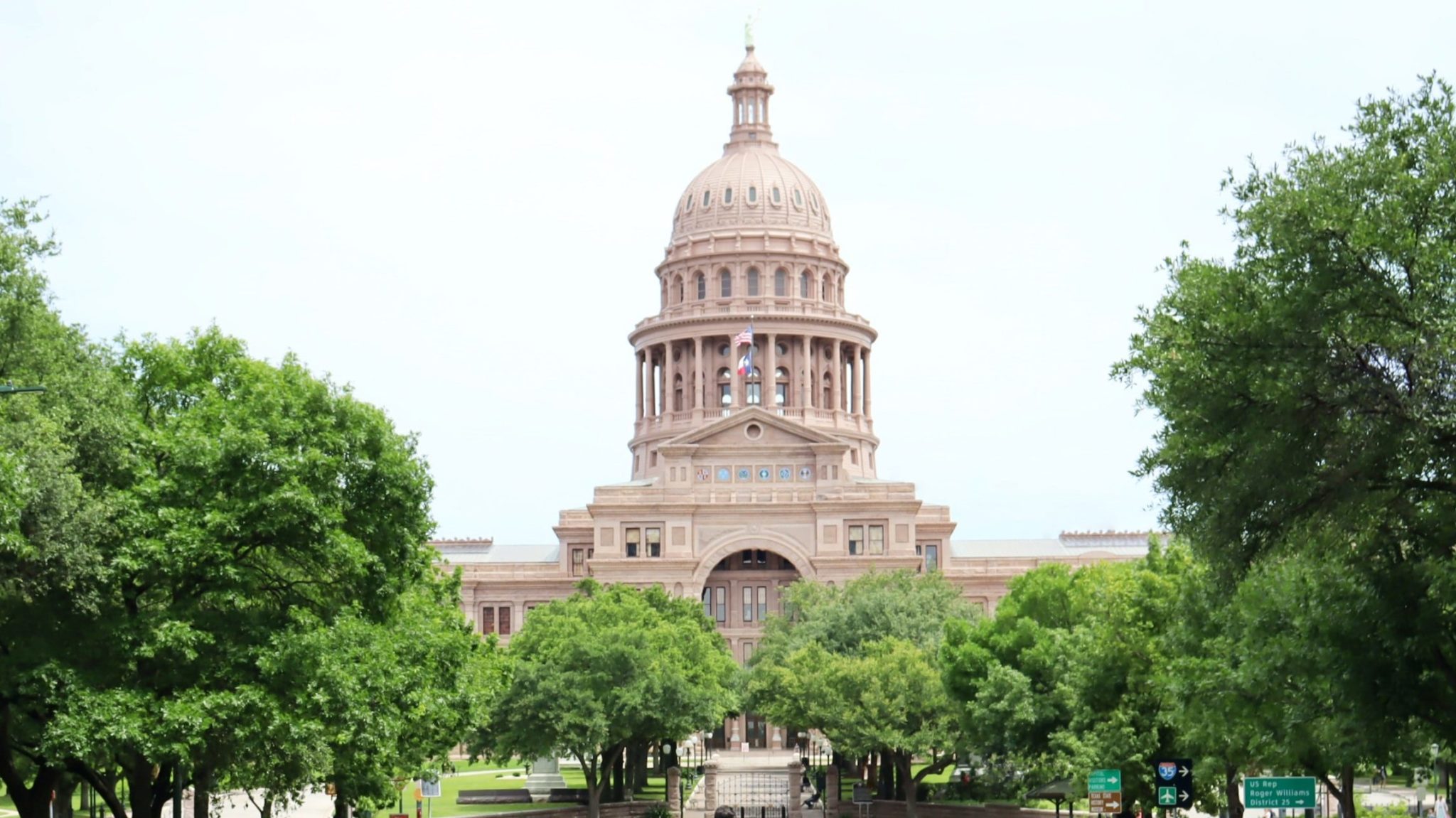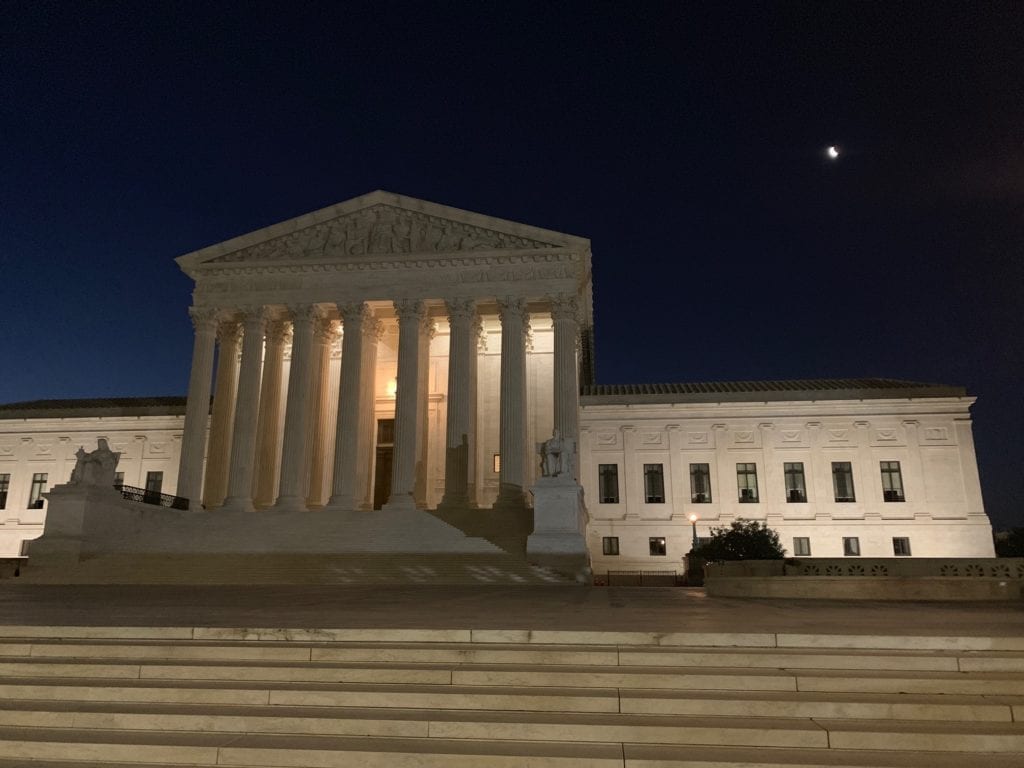Center and Partners File Lawsuit to Block Texas Abortion Ban
Designed to attempt to skirt judicial review, law incentivizes individuals to sue abortion providers and anyone who helps a person obtain an abortion after six weeks of pregnancy.

The Center for Reproductive Rights and its partners today filed a lawsuit to block an extreme Texas law that bans abortion care after approximately six weeks of pregnancy, before many people know they are pregnant. The law, S.B. 8, incentivizes private individuals—including anti-abortion activists—to seek monetary penalties and injunctions by suing anyone who performs an abortion or assists someone in obtaining one.
By shifting enforcement from state officials to private individuals, the state is attempting to evade legal accountability in court.
The plaintiffs in today’s case, Whole Woman’s Health et al. v. Jackson et al.—including Texas abortion providers led by Whole Woman’s Health, doctors, clinic staff, abortion funds, support networks, and clergy members—are asking the U.S. District Court for the Western District of Texas to block the law before it is scheduled to take effect on September 1, 2021. Defendants in the lawsuit include every state court trial judge and clerk in Texas, the Texas Medical Board, the Texas Board of Nursing, the Texas Board of Pharmacy, the attorney general, and Mark Lee Dickson, Director of Right to Life East Texas, an individual who has threatened to sue under the new law. Each of these parties will have a role in enforcement of S.B. 8.
“If this oppressive law takes effect, it will decimate abortion access in Texas–and that’s exactly what it is designed to do,” said Nancy Northup, president and CEO of the Center for Reproductive Rights. “The state has put a bounty on the head of any person or entity who so much as gives a patient money for an abortion after six weeks of pregnancy, before most people know they are pregnant. Worse, it will intimidate loved ones from providing support for fear of being sued. And this is happening to Texans as we are fighting another direct challenge to Roe v. Wade in the Supreme Court, out of Mississippi. We will pursue every legal avenue we can to block this and other pernicious laws.”
The plaintiffs are being represented by the Center, Planned Parenthood Federation of America, the American Civil Liberties Union, the ACLU of Texas, the Lawyering Project, Morrison & Foerster LLP, and Austin attorney Christen Mason Hebert.
“When it comes to abortion access, we are living in two different Americas. With every barrier that has been enacted over the last 30 years in Texas, it’s nearly impossible for pregnant people to access the quality abortion care they need….SB 8 will be the biggest barrier yet.”
Law Provides $10,000 Incentive for Individuals to “Enforce” Texas Abortion Ban
Under S.B. 8, anyone who successfully sues another person or provider will be entitled to at least a $10,000 monetary award, an injunction preventing future violations, as well as attorney’s fees and costs. Lawsuits could be filed against both abortion providers and a broad range of people—considered by the law to be “aiders and abettors”—including a person who drives their friend to obtain an abortion; abortion funds providing financial assistance to patients; health center staff; and a member of the clergy who counsels or assists an abortion patient.
People who successfully defend themselves from such lawsuits, however, are prohibited under S.B. 8 from recovering their fees and costs.
“This radical law will isolate people seeking to exercise their constitutional right to abortion care by targeting their entire support network and discouraging their loved ones from providing help and support for fear of being sued,” said Marc Hearron, Senior Counsel at the Center. “This is just the latest attempt by Texas politicians to ban abortion, but this time they’ve gone to a new extreme.”
If the law takes effect, abortion providers, clinic staff, and abortion funds could be saddled with endless lawsuits that consume their time and resources and prevent them from providing health care services, potentially forcing them to ultimately shut down.
Texas Has Passed Dozens of Restrictions on Abortion Access
Abortion is already extremely difficult to access in Texas. Restrictions have forced health centers to close and have pushed access out of reach for many. As with other abortion restrictions, S.B. 8 would disproportionately harm people of color, those living on low incomes, and those in rural areas. People struggling to make ends meet must often delay care to secure funds, and Texas prohibits coverage of abortion care through its Medicaid program and in nearly all private insurance plans.
Other Texas abortion restrictions include state-mandated biased counseling, a 24-hour mandatory delay that forces patients to make two trips to the clinic and shoulder additional costs, a ban on the use of telemedicine for abortion, and a parental consent requirement.
Approximately 85-90% of people who obtain abortions in Texas are at least six weeks into pregnancy—so this law would prohibit nearly all abortion care in the state.
Lawsuit Also Claims Texas Law Violates Constitutional Rights
Among other claims, the lawsuit filed today states that S.B. 8 blatantly violates Texans’ constitutional right to privacy and liberty as established by Roe v. Wade nearly 50 years ago. The law also violates the constitutional rights of abortion providers and supporters, including their right to equal protection under the law, and their First Amendment rights to speech and access to the courts.
Read more:
Case background: Whole Woman’s Health et al. v. Jackson et al.
Lawsuit Filed to Stop Texas’ Radical New Abortion Ban, 07.13.21


